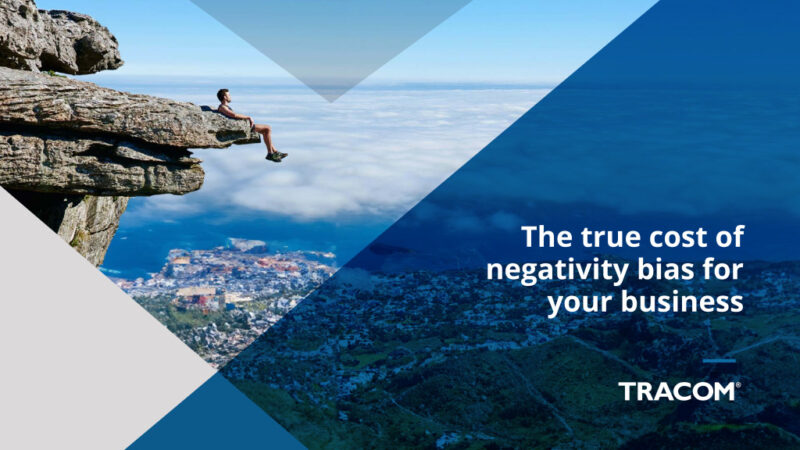Overcoming Our Human Nature
We have an inherent human tendency to focus on the negative. This is called the negativity bias and is a part of our DNA. The negativity bias has played a role in the survival of the human species for millennia. It’s human nature to fear the worst because as we evolved, our very existence depended on it. The racing heartbeat and surge of panic we feel when our boss calls us into the office or our presentation fails is the same biological response our ancestors felt when their safety was threatened by a predator or lack of food.
Negativity Bias: The Mind’s Tendency to Worry
Before we know it, a stress response kicks in and negativity bias plays havoc with our day and our performance. We don’t see the opportunity for learning or growth—we just see the predator on the horizon. But today, we don’t have the same threats to our safety. Instead, our negativity bias manifests during periods of uncertainty at work, when we feel under pressure to perform, and when we fear the worst. It’s our natural tendency to expect the worst that causes us to fall into the negativity trap.
There is good news. Research shows that 91% of the things we worry about don’t happen. And when our fears do come true, most of the time things work out better than we expected. The negativity bias causes us to expend energy worrying about things that almost never happen when we would be better served using that energy productively. We shouldn’t always expect the worst.
This whitepaper explores those negative thinking patters and helps you change them. It will make you more adaptable to change and more productive. So stay positive and break the cycle of negativity!

 New Horizons
New Horizons
 Project Management Academy
Project Management Academy
 Six Sigma Online
Six Sigma Online
 TCM Security
TCM Security
 TRACOM
TRACOM
 Velopi
Velopi
 Watermark Learning
Watermark Learning
 Login
Login

